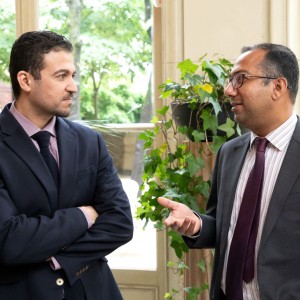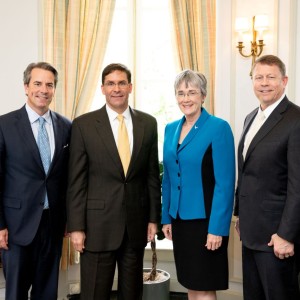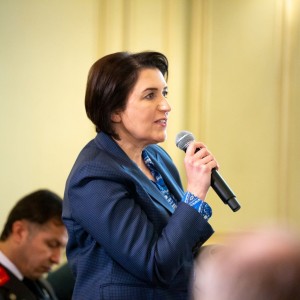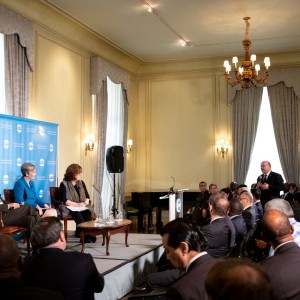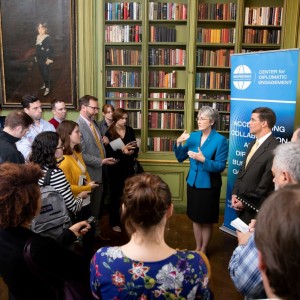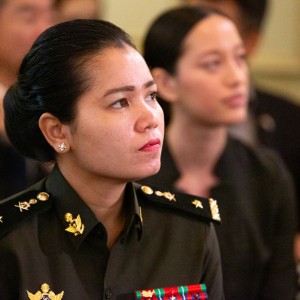Ready for Any Fight: A Conversation with the U.S. Service Secretaries

“My goal is to make sure that the U.S. Air Force is ready for any fight at any time,” said Secretary of the Air Force Heather Wilson. The Secretaries of the Army and Air Force have complex, crucial jobs in maintaining national peace and security, but they summarized their goals very succinctly: organizing, training and equipping the Armed Forces so that the United States can exercise strategic pressure. The conversation between Secretary of the Air Force Heather Wilson and Secretary of the Army Mark Esper, moderated by CNN Pentagon Correspondent Barbara Starr, gave over 70 ambassadors, defense attachés, senior diplomats and journalists an inside look into the United States Armed Forces.
The conversation, held at Meridian International Center on May 14, did not shy away from hot-button issues such as military presence at the Southwest U.S. border, climate change, and military alliances.
Speaking about the presence of and demand on U.S. troops at the southern border, Secretary Esper said that the demand is driven by decisions made by the Department of Homeland Security. Secretary Esper went on to explain that “with a million-man Army, having even 4,000 troops at the border does not impact the U.S. Army’s ability to deploy, fight and win battles.”
“The fact is that the climate is changing, so we must confront it,” explained Secretary Esper. Pointing to the theme of readiness, Secretary Wilson responded that from their vantage point, the Armed Forces have to be prepared to deal with the reality of the effects regardless of the causes of climate change. The Secretaries treat perilous weather as any other adversary, ensuring that their bases are resilient against its negative impacts.
Alliances are increasingly important in global security, and the Secretaries both expressed their desire to see U.S. allies pulling their weight in military spending and cooperation. Cooperation is important, but allies must work together towards a common goal and with equal fervor. The Secretaries cited the NATO members’ commitment to dedicating 2% of total GDP to defense spending as an example of allies collaborating effectively.
The Secretaries fielded questions from the audience regarding a variety of topics, from relations with North Korea to military spending and continued to emphasize collective defense and military cooperation.
This program was made possible through the generous support of Lockheed Martin Corporation.
Insights @ Meridian and other Meridian Center for Diplomatic Engagement programs serve to provide the international diplomatic corps with a better understanding of U.S. domestic policies from multiple perspectives. For more information, please visit meridian.org/diplomacy.
See full gallery Learn more about Insights@MeridianProject summary
| Ready for Any Fight: A Conversation with the U.S. Service Secretaries | May 2019 | |
|---|---|
| Number of Attendees: | 73 |
| Regions: | Africa, East Asia and Pacific, Europe and Eurasia, Near East and North Africa, South and Central Asia, Western Hemisphere |
| Countries: | Afghanistan, Australia, Bahamas, Bahrain, Bulgaria, Cambodia, Côte d’Ivoire, Croatia, Ecuador, Egypt, Iraq, Lesotho, Malaysia, Montenegro, Mozambique, New Zealand, Nicaragua, Norway, Pakistan, Panama, Peru, Philippines, Senegal, Serbia, Singapore, South Africa, Türkiye, Ukraine, Zambia |
| Impact Areas: | Foreign Policy, Security and Defense |
| Program Areas: | Diplomatic Engagement |
| Partners: | Private Sector |

